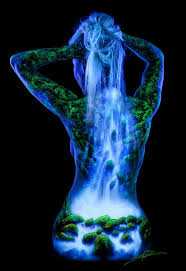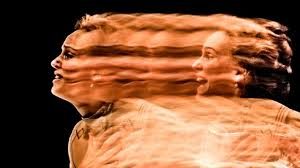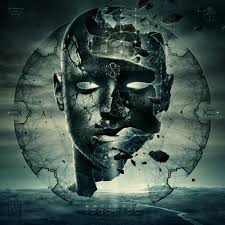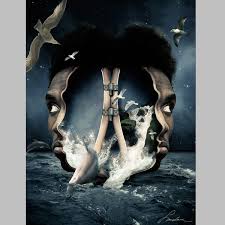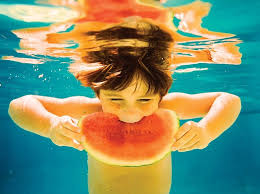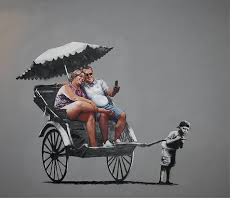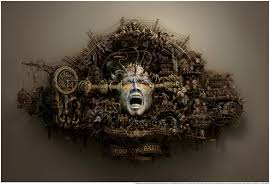Illnesses can be seen as impeding actions representing actual blockages of energy, action turned into channels that are not to the best interests of the personality. The energies appear concentrated and turned inward, affecting the whole system. They represent offshoots; not necessarily detrimental in themselves, except when viewed from the standpoint of other actions that form the personality framework.

A certain portion of the energy practically available to the personality is spent in the maintenance of this impeding action of illness. It is obvious, then, that less energy is available for actions more beneficial to the personality system as a whole.
The situation can be serious in varying degrees, according to the impetus and intensity of the original cause behind the illness. If the impetus is powerful, then the impeding action will be of more serious nature, blocking huge reserves of energy for its own purposes. It obviously becomes part of the personality’s psychological structure, the physical, electrical and chemical structures, invading to some extent even the dream system.

If illness is detrimental and we know it, then why does poor health linger at times?
At times, illness is momentarily accepted by the personality as a part of the self, and here lies its danger. It is not just symbolically accepted, and I am not speaking in symbolic terms. The illness is often quite literally accepted by the personality structure as a portion of the self. Once this occurs, a conflict instantly develops. The self does not want to give up a portion of itself, even if that part may be painful or disadvantageous.

This has serious implications. Obviously the easiest time to cure an illness is before it is accepted as a part of the self-image. (I’ll go on to explain some of the other deeper reasons for the continuance of symptoms and our acceptance of them.)
For one thing, while pain is unpleasant, it is also a method of familiarizing the self against the edges of quickened consciousness. Any heightened sensation, pleasant or unpleasant, has a stimulating effect upon consciousness to some degree. It is a strong awareness of activity and life. Even when the stimulus may be extremely annoying or humiliatingly unpleasant, certain portions of the psychological framework accept it undiscriminatingly because it is a basic part of the nature of consciousness and a necessary one.

Even a quick and automatic rejection or withdrawal from such a stimulus is, in itself, a way by which consciousness knows itself. The ego may attempt to escape such experiences, but the basic nature of action itself is the knowing of itself in all aspects. In a very deep manner, action does not differentiate between enjoyable and painful actions.
These differentiations come later, on another level of development. But because personality is composed of action, it contains within it all action’s characteristics.
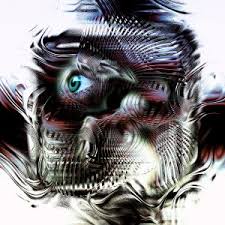
Here I will describe the ways in which various kinds of consciousness react to painful stimuli, ending up with a statement that at the deepest cellular levels, all sensations and stimuli are instantly, automatically and joyfully accepted, regardless of their nature. At this level, no knowledge of threat exists. The “I” differentiations is not definite enough to fear destruction.

Here we have action knowing itself and realizing its basic indestructibility: It has no fear of destruction, for it is also a part of the destruction from which new actions will evolve.
The complicated organism of human personality with its physical structure has evolved a highly differentiated ‘I’ consciousness, whose very nature is such that it attempts to preserve the apparent boundaries of identity: To do so it must choose between actions.
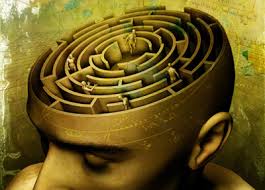
But beneath the sophisticated gestalt are the simpler foundations of its being and, indeed, the very acceptance of all stimuli without which identity would be impossible. Without this acquiescence, the physical structure would never maintain itself, for the atoms and molecules within it constantly accept painful stimuli and suffer even their own destruction. They are aware of their own separateness within action and of their reality within it.
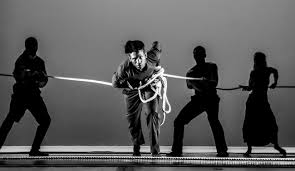
Now you should understand why even an impeding action can be literally accepted by the personality as a part of itself and why efforts must be made to coax the personality to give up a portion of itself, if progress is to be made.
We are also helped, however, by several characteristics of the personality, in that it is every-changing, and its flexibility will be of benefit. We merely want to change the direction in which some of its energy moves. It must be seen by the personality that an impeding action is a hardship on the whole structure and that this particular part of the self is not basic to the original personality. The longer the impending action is accepted, the more serious the problem.
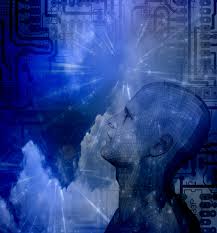
Can illness serve a good purpose? Yes.
The whole focus of a personality can change from constructive areas to a concentration of main energies in the area of the illness. Now in such a case, often the illness represents a new unifying system. If the old unifying system of personality has broken down, the illness, serving as a makeshift, temporary emergency measure may hold the integrity of the personality intact until a new constructive, unifying principle replaces the original.
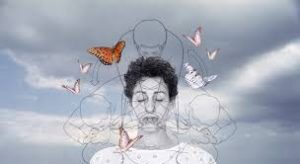
In this case, the illness could not be called an impeding action unless it persisted long after its purpose was served. Even then, without knowing all the facts we could not make a judgment, for the illness could still serve by giving the personality a sense of security, being kept on hand as an ever-present emergency device in case the new unifying principles should fail.
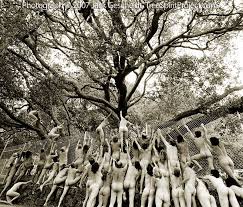
Unifying principles are groups of actions about which the whole personality forms itself at any given time. These may change and do change in a relatively smooth fashion when action is allowed to flow unimpeded. When action is not allowed to follow the patterns of channels for its expression that have been evolved by the personality, then blockages of energy occur.

These must be understood not as something apart from the personality, but as a part of the changing personality. Often, they point out the existence of inner problems. Often, they serve temporary functions, leading the personality from other more severe areas of difficulty. I am not saying here that illness is good. I am saying that it is a part of the action of which any personality is composed, and therefore, it is purposeful and cannot be considered as an alien force that attacks the individual from without.
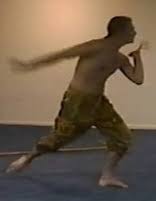
In this blog, I am describing illness as a part of action, but, as I make clear, this is not meant to imply any negation of psychological or psychic values. The nature of action, however, is important.
The personality is simultaneous action; it is composed of actions within actions. Portions of it are conscious of its awareness as a part of action, and portions try to stand aside from action. The attempt forms the ego, which is itself action.
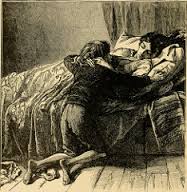
If illness were thrust upon action or upon the personality from the outside, then the individual would be at the mercy of outside agencies, but in a most basic manner, it chooses those actions which it will accept.

An illness can be rejected. The habit of illness can be rejected. When action is allowed to flow freely, then neurotic rejections of action will not occur. An illness is almost always the result of another action that cannot be carried through. When the lines to the repressed action are released and the channels to it opened, such an illness will vanish. However, the thwarted actions may be one with disastrous consequences, which the illness may prevent.
Even calcium deposits are accumulations of repressed energy stored up in the body.

Poor health is caused mainly by destructive mental and feeling patterns that directly affect the body because of the particular range within the electromagnetic system in which they fall. Bad health, for example, does not happen first, resulting in unhealthy thoughts. It is the other way around.

Illness must be treated primarily by changing the basic mental habits. Unless this is done, the trouble will erupt again and again in different guises. The system has the ability to heal itself, however, and every opportunity should be given to allow it to do so.

In most cases the stimuli [toward healing] come from deeper levels of the self, where they may be translated into terms that the personal subconscious can use. In such cases, these perceptions may find their way to the ego, appearing as inspirations or intuitive thought.

Many such intuitions appear when the personality is dissociated or in a dream state. The effect of any thought is quite precise and definite and set into motion because of the nature of its own electromagnetic identity. The physical body operates within certain electromagnetic patterns and is adversely affected by others. These effects change the actual molecular structure of the cells, for better or worse, and because of the laws of attraction, habitual patterns will operate. A destructive thought, then, is dangerous not only to the present state of the organism but is also dangerous in terms of the ‘future.’

Therapeutic dreams — have the ability to cure the body. I’ll explain how such dreams act upon the physical system.
We have not spoken about the inner senses in some time. By now, my blog readers, should realize that they have an electromagnetic reality also and that the mental enzymes act as sparks, setting off inner reactions. In the dream state, these reactions are easily triggered. This is the result of the lowering of egotistical guards, for the ego sets up controls that act as resistances to various inner channels [during the waking state].

A destructive attitude of mind has been changed overnight in dream state to a constructive situation in many instances, and the whole electromagnetic balance has been changed. In such case, negative ions form an electrical framework in which healing is possible. Such healing dreams come most often when the self feels a sense of desperation and automatically opens up channels to deeper layers or personality.

Often we find an almost instant regeneration, a seemingly instant cure, a point from which the organism almost miraculously begins to improve. The same happens in less startling cases where, for example, a merely annoying health condition suddenly disappears.

Through self-suggestion, these therapeutic dreams can be brought about with practice. The suggestion (being action) has its own electromagnetic effect and already begins to set certain healing processes into action, while sparking the formation of others.

Such inner therapeutics may occur at various other levels of consciousness, where they may be sparked by exterior stimuli of an aesthetic or pleasing nature. Other exterior conditions also have an effect. To involve oneself in large groups, for example, is often beneficial not simply to take attention away from the self for a change, but because of the larger range of electromagnetic ranges readily available.
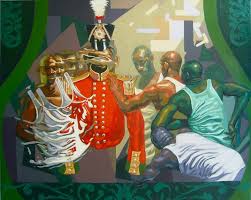
The overall health of the individual is important, as it is the delicate balance of electromagnetic properties. When the organism is set deeply in destructive patterns, then this is sometimes felt in the dream state, so that destructive dreams then add to the entire situation. For this reason, the use of self-suggestion in bringing about constructive dreams is of great benefit.
In the dream one’s ability is as much a part of oneself as breath and can’t be turned off and on at will. There many aspects or reincarnational data in the dream, all reinforcing healthy elements.
